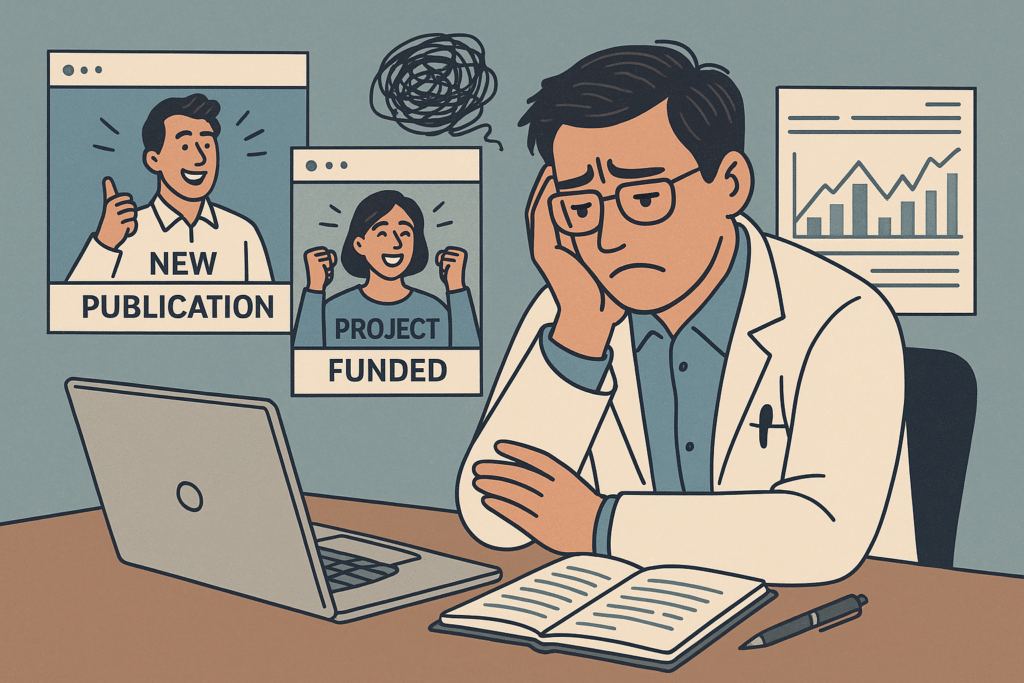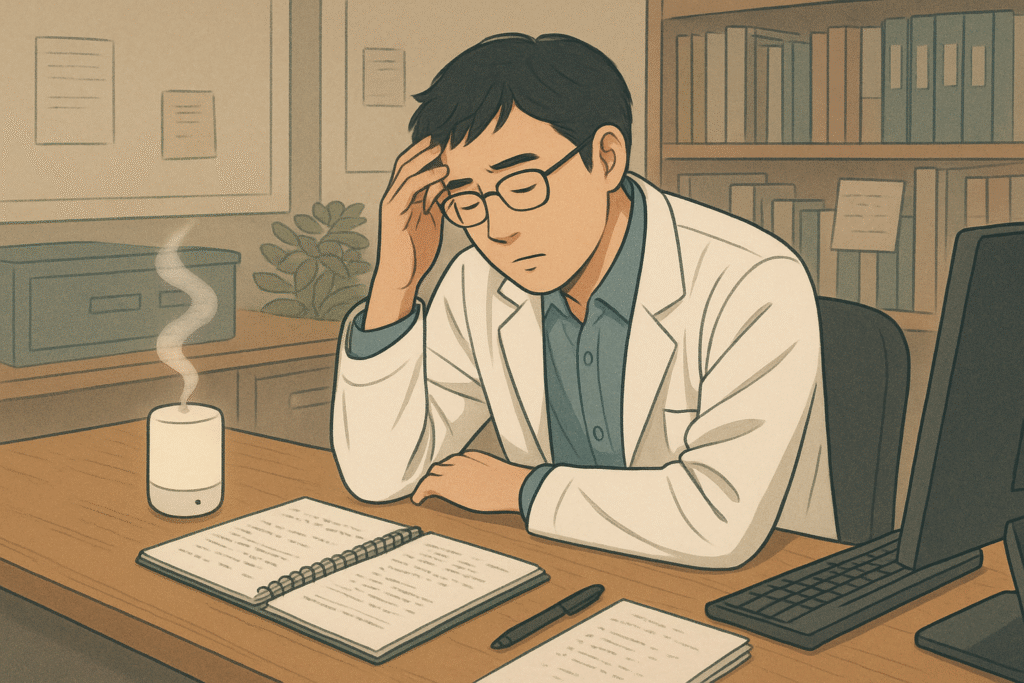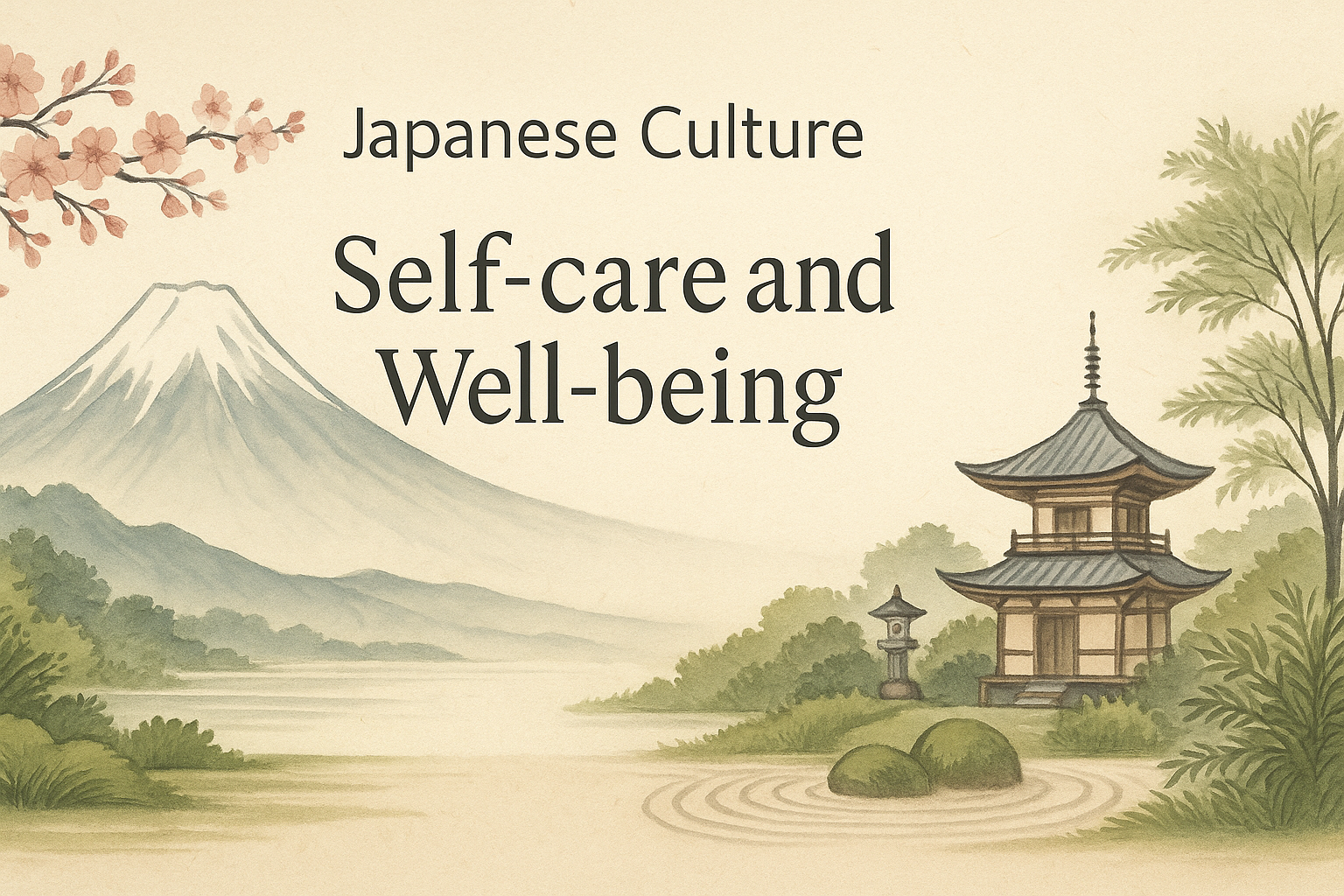In Japan’s demanding academic and professional culture, researchers frequently struggle with stress and burnout. Here, we explore their subtle yet effective self-care habits, providing cultural context and actionable ideas for maintaining mental well-being. (Related article in Japanese | スランプ・焦り・劣等感に揺れながら)
Understanding Japanese Culture and Workplace Pressure
In Japan, work culture prizes dedication, perseverance, and humility. For researchers and professionals alike, these values contribute to high-pressure environments where many feel they are never doing enough. In academia, this pressure is amplified by the increasing visibility of performance metrics such as journal impact factors, citation counts, and research funding awards—numbers that are now easily compared online and among peers.
Social media further intensifies this atmosphere by making colleagues’ achievements highly visible in real time. At the same time, mid-career researchers often find themselves in a difficult generational position: they are expected to guide students and junior researchers with care, but any strict demand for research results risks being labeled as harassment. This reality leaves many unable to push others firmly while themselves being held to increasingly high expectations.
While researchers can theoretically take breaks, these often fail to provide genuine rest amid constant performance anxiety and the perception that younger colleagues—especially high-performing early-career researchers—are now more likely to secure better salaries and positions.
In this cultural backdrop, even small self-care practices take on profound meaning. Prioritizing well-being or deliberately slowing down can feel countercultural in Japan, where “doing more” is often regarded as a virtue. Understanding these pressures helps explain why self-care rituals, though subtle, play a vital role in sustaining Japanese professionals’ mental health.

Stress and Burnout Among Japanese Researchers Today
Many Japanese researchers face not only demanding workloads but also constant exposure to their peers’ successes. It is common to see colleagues celebrating new publications or major research grants online, while others quietly struggle with exhaustion and overwhelming responsibilities.
Researchers often wake up already fatigued, spend mornings replying to emails, and find it difficult to focus on core research tasks. Even when they intellectually understand that “comparison doesn’t help”, the emotional impact of feeling left behind can be significant. This is a widespread experience in Japan’s academic and professional environments, where visible achievements can easily overshadow unseen struggles.
Self-Care Tips for Foreigners in Japan
If you are a foreign researcher or working professional in Japan, consider these insights:
- Understand the cultural nuance: Self-care is not always encouraged explicitly but is essential for well-being.
- Manage your social media exposure: Constant comparison can be draining; curate what you consume.
- Learn to claim your time: Even in high-pressure environments, small self-care rituals can help protect your mental health.
A Researcher’s Story: Managing Stress and Comparison
For many Japanese researchers, the turning point in coping with stress and comparison comes quietly—often after recognizing deep exhaustion and an unhealthy fixation on how colleagues appear to succeed more quickly.
In such moments, some researchers begin adopting small but significant changes in their daily routine. Instead of starting the day by immediately answering emails or reacting to external demands, they deliberately carve out “me time” in the morning to reflect, set intentions, and regain control over their pace.
This shift is often reflected in their physical work environment: desks arranged with thoughtful care, notes and ideas neatly gathered, and student requests managed with greater clarity and patience. Beyond organization, many turn to sensory resets—using scent, sound, or touch to interrupt negative thought cycles and help ground themselves in the present.
A popular self-care tool in Japanese laboratories is the portable aroma diffuser. A subtle citrus or mint fragrance offers a gentle cue to pause, breathe deeply, and mentally reset. Some researchers keep these diffusers at their desks, while others use them at home before bed as part of a calming ritual.
These practices are not simply about relaxation; they serve as mindful techniques to resist the pressures of constant comparison, reclaim personal agency, and nurture a healthier relationship with work.
While the demands of academia remain high, these small acts of self-care create a sense of calm and order amidst the chaos—helping researchers protect their well-being while remaining committed to their professional path.

Practical Self-Care Ideas You Can Try
Inspired by the experiences of Japanese researchers, here are practical self-care ideas that foreigners in Japan—or anyone facing stress and burnout—can easily adopt:
- Intentionally schedule “me time”
Take 10 minutes in the morning for personal reflection before external demands take over. - Use scents to reset your mind
Portable aroma diffusers with citrus or herbal oils can trigger calmness and focus. - Write a “done list” instead of a to-do list
Recognizing small accomplishments can shift your mindset from pressure to appreciation. - Create distance from comparison
When you feel trapped by comparison, write your feelings down to externalize and reduce their power. - Support your body during work
Simple comforts can improve mental and physical well-being:- Portable Aroma Diffuser: A gentle cue to pause and breathe.
- Low-Resilience Cushion: Reduces physical tension.
- Heated Eye Mask: Helps relax after long workdays.
Conclusion: Small Habits to Protect Your Mental Health
Self-care may seem like a quiet, almost invisible act in Japan’s high-pressure professional culture, but it is far from trivial.
Small, intentional practices—pausing in the morning for yourself, embracing the simple power of scent, acknowledging your own accomplishments—are gentle yet profound ways to restore balance.
These habits do not eliminate stress or competition, but they create space: a moment of calm between expectations and action, a breath before the next step.
They remind us that caring for oneself is not indulgent, but essential for sustaining energy, clarity, and resilience over the long term.

In today’s fast-paced, hyperconnected world, this lesson resonates globally.
No matter where you are, the art of slowing down, noticing your own needs, and choosing kindness toward yourself is a practice worth cultivating.
As one researcher reflected:
“Maybe perseverance itself matters more than achievements.”
It’s a sentiment that offers both reassurance and a quiet form of strength—one that allows us to continue, gently but surely, on our own path.



Comments